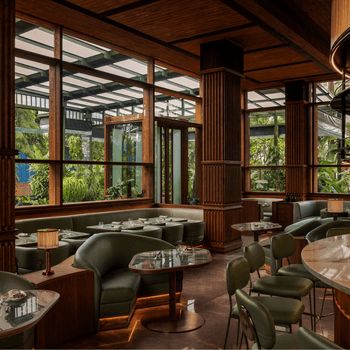Mangalore: The Gateway to Karnataka's Coffee Kingdom

Hire Arrive
Travel
about 1 year ago

Karnataka's reputation as India's coffee capital is deeply intertwined with the coastal city of Mangalore. While the coffee plantations themselves lie nestled in the Western Ghats' hills, Mangalore served – and continues to serve – as a crucial artery, playing a pivotal role in the state's coffee history from its nascent stages to its present-day dominance. Its significance stretches beyond mere logistics; it's a story of trade, innovation, and the shaping of a regional identity.
The Early Days: A Port of Entry and Export:
Coffee cultivation in Karnataka wasn't an indigenous affair. Bababudangiri hills, often cited as the birthplace of Indian coffee, saw its initial planting in the 17th century. However, the journey of this new crop to the world market hinged on Mangalore's strategic position. As a major port on the Malabar Coast, Mangalore became the primary gateway for exporting coffee beans. The ease of access to the Arabian Sea facilitated the shipment of coffee to international markets, primarily Europe, establishing early trade connections and laying the groundwork for the burgeoning industry.
The Rise of the Coffee Industry:
The 19th and 20th centuries witnessed the exponential growth of coffee cultivation in Karnataka. Mangalore's port infrastructure played a crucial role in this expansion. As plantations expanded, the need for efficient transport and processing facilities grew. Mangalore became a hub for coffee processing units, warehouses, and trading houses. The city's proximity to the plantations minimized transportation costs and time, ensuring the timely delivery of high-quality beans to the port.
Beyond Export: Processing and Value Addition:
Mangalore's role wasn't limited to simply exporting raw beans. Over time, it developed a robust coffee processing industry. The city became home to various factories involved in cleaning, sorting, grading, and packaging coffee beans, adding value to the final product before export. This processing infrastructure ensured that Karnataka's coffee met international quality standards, further enhancing its reputation in the global market.
The Legacy Continues:
Even in the present day, Mangalore remains a significant player in Karnataka's coffee industry. While transportation infrastructure has diversified, Mangalore port continues to be a vital export point. The city's legacy of coffee processing also continues, with several processing units operating and contributing to the state's coffee economy. Moreover, Mangalore's vibrant coffee culture reflects its close association with the industry. Local cafes and restaurants offer a rich variety of coffee blends, showcasing the city's deep-rooted connection to the beverage.
Conclusion:
Mangalore's contribution to Karnataka's coffee history is undeniable. From its role as the primary export hub to its development of a robust processing industry, the city has been an indispensable partner in the journey of Karnataka's coffee from a nascent crop to a globally recognized commodity. The city's legacy is not just inscribed in its historical records but also etched into the very fabric of Karnataka's coffee culture, a testament to its enduring influence on the industry. The story of Karnataka's coffee is incomplete without acknowledging Mangalore's vital and indispensable role.